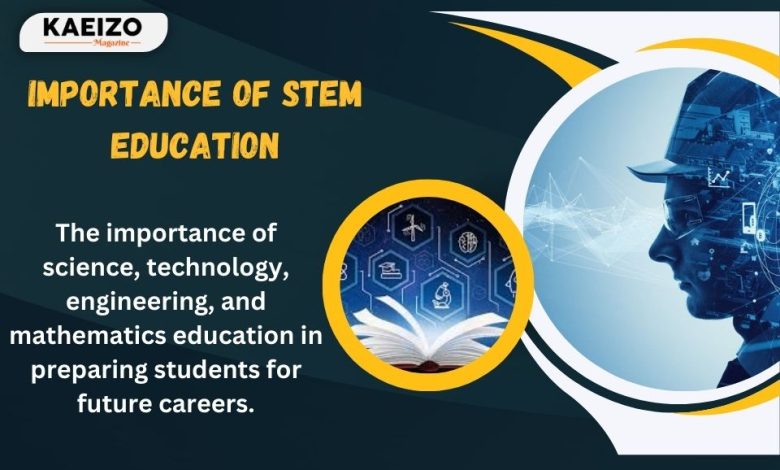Importance of STEM Education

STEM education, which encompasses the fields of Science, Technology, Engineering, and Mathematics, is increasingly recognized as critical for preparing students to succeed in the modern world. Here are several reasons why STEM education is so important:
1. Future Workforce Preparation
STEM fields are at the forefront of innovation and economic growth. As technology continues to evolve, there is a growing demand for professionals skilled in these areas. By emphasizing STEM education, we equip students with the knowledge and skills needed for high-demand careers in industries such as healthcare, information technology, engineering, and environmental science.
2. Critical Thinking and Problem-Solving Skills
STEM education fosters critical thinking and problem-solving abilities. Students learn to approach complex problems systematically, analyze data, and develop logical solutions. These skills are valuable not only in STEM careers but also in everyday life and various other professional fields.
3. Innovation and Technological Advancement
Advancements in science and technology drive progress in numerous sectors. STEM education encourages innovation by teaching students how to think creatively and apply scientific principles to real-world problems. This mindset is essential for developing new technologies, medical treatments, and sustainable solutions to global challenges.
4. Global Competitiveness
In a globalized economy, countries that prioritize STEM education are better positioned to compete on the world stage. By producing a workforce proficient in STEM, nations can maintain economic competitiveness, attract high-tech industries, and lead in research and development.
5. Improved Educational Outcomes
Studies have shown that students engaged in STEM learning often perform better academically. The hands-on, inquiry-based approach used in STEM education can increase student engagement and motivation, leading to improved outcomes in other subjects as well.
6. Addressing Societal Challenges
STEM professionals play a crucial role in addressing critical issues such as climate change, public health, and sustainable development. By educating students in STEM disciplines, we prepare them to tackle these challenges and contribute to the betterment of society.
7. Encouraging Diversity and Inclusion
Promoting STEM education among underrepresented groups helps to diversify the STEM workforce. Efforts to make STEM accessible and appealing to all students, regardless of gender, race, or socioeconomic background, can lead to a more inclusive and innovative field.
8. Interdisciplinary Learning
STEM education often involves an interdisciplinary approach, integrating concepts from different subjects. This holistic method of learning helps students make connections across various fields, enhancing their overall understanding and ability to apply knowledge in diverse contexts.




